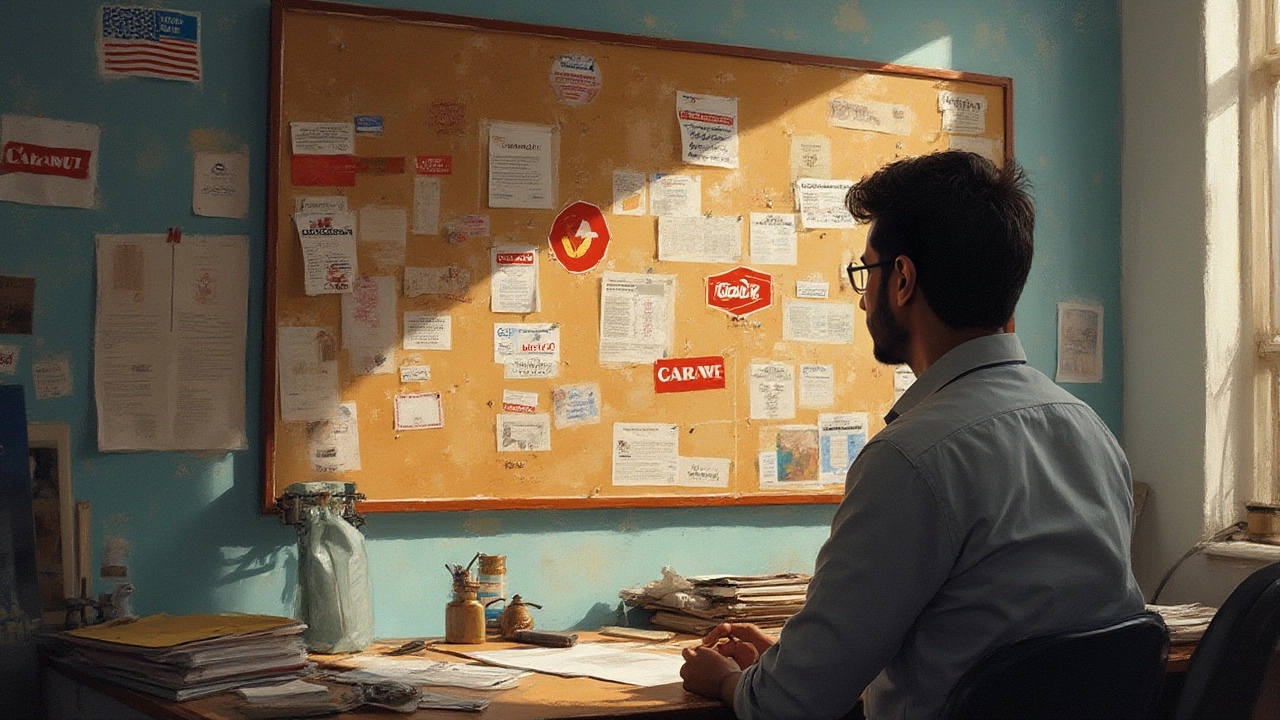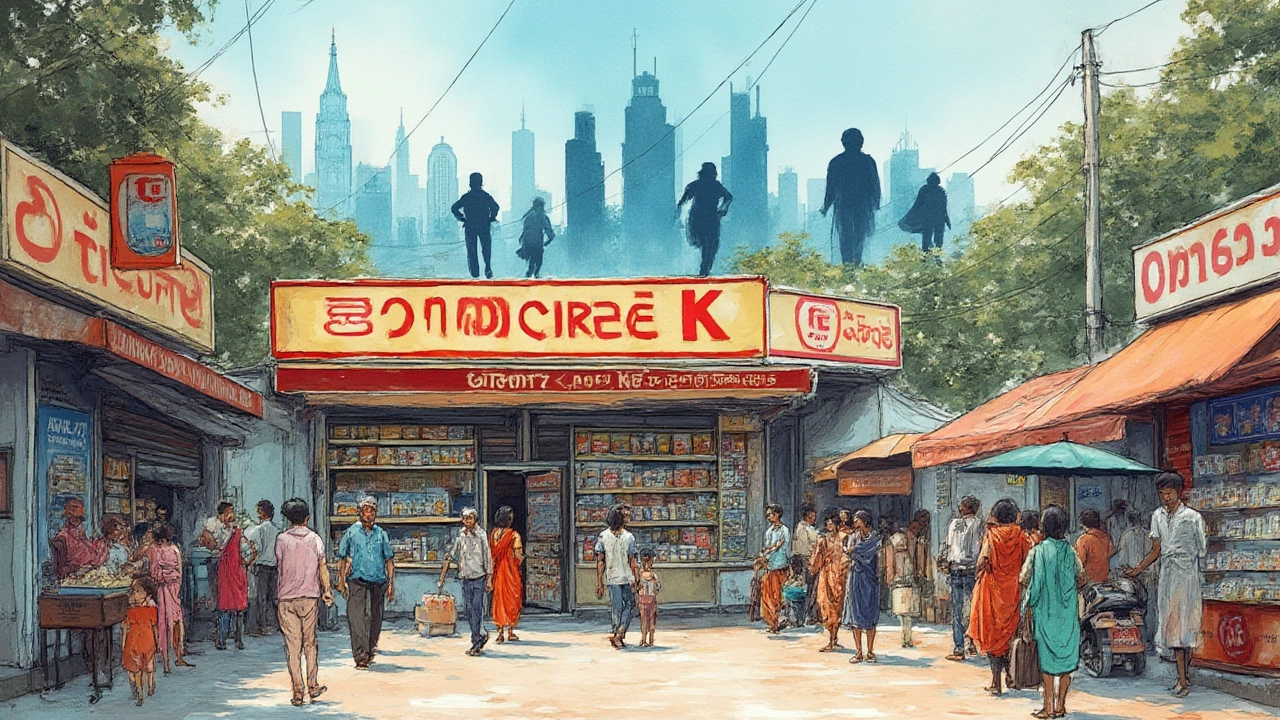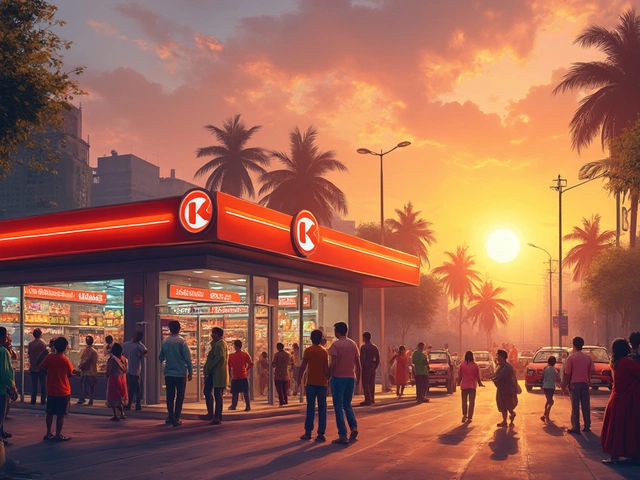Ever walked into a Circle K for a cup of coffee and wondered who's really pulling the strings behind the scenes? The question of whether China owns Circle K pops up a lot, fueled by internet rumors and confusing ownership ties in the business world. You might even hear someone claim, "Yeah, that's a Chinese chain now," while grabbing an energy drink from the fridge. But is there any truth to this? It’s time to dig into what’s really going on and see who’s holding the keys to your local Circle K.
The Origins and Growth of Circle K
If you picture American highways, you’ll probably spot the Circle K logo lighting up somewhere in your mind. That red and white sign has meant quick snacks, fuel, and late-night pit stops for ages. But Circle K didn’t just spring up overnight. In fact, it was born in 1951 in El Paso, Texas, way before convenience stores were even called convenience stores. The original founder, Fred Hervey, scooped up three Kay’s Food Stores and turned them into the first Circle K shops, aiming to make life a little easier for people on the go.
As time ticked on, Circle K exploded across the United States, showing up in small towns and big cities alike. Expansion outside America kicked off in the 1970s and 80s, when the brand popped up in places like Japan and Hong Kong, laying the foundation for Circle K’s global reach. By the 1990s, you could find their stores on multiple continents, always within a short drive or walk, each promising the same quick-fix comforts. What’s cool is that the company weathered tough spots too, from bankruptcies to ownership changes that could scare off lesser brands.
Now, here’s where it gets interesting for the ownership question: Circle K is part of a massive Canadian group called Alimentation Couche-Tard. This Quebec-based company owns thousands of Circle K stores around the globe, masterminding much of how the brand moves and grows. So, for anyone who thinks Circle K is owned by a Chinese company, this bit already shakes up that claim. The command center for decisions isn’t in Shanghai or Beijing—it’s in Laval, Quebec. But the tale doesn’t end here, because Circle K’s story cuts across borders and business deals that sometimes create confusing links. So how did the idea spread that China owns this globe-trotting chain?

Who Really Owns Circle K—and Why the China Rumors?
So let’s tackle the big question head-on: does China own Circle K? The short, accurate answer is no. If you peek behind the receipts and red aprons, you’ll see that Alimentation Couche-Tard, a giant in the global convenience store game, scooped up Circle K as its flagship international brand years ago. Couche-Tard gobbled up several U.S. chains in the 2000s, finally buying the rights to Circle K’s operations in 2003 and making it the face of their worldwide expansion. They’ve been opening, rebranding, and running stores across North America, Europe, and Asia from their Canadian base ever since.
So why the whisper campaign about China owning Circle K? It boils down to a few things. First, Circle K franchises exist in countries all over the place, including lots in Asia. In mainland China, a totally different company runs the Circle K stores—Convenience Retail Asia Limited—under a licensing agreement. They pay for the right to use the Circle K name, logo, and business model but don’t actually own the overall company. It’s a bit like renting your neighbor’s car: you can drive it as long as you stick by their rules, but you don’t get to sell it.
What makes things fuzzier is that Circle K’s parent company, Couche-Tard, has been expanding into Asian markets, looking for new territories to plant its flag. When brands start showing up in Hong Kong, Macau, or the southern cities of China, it’s easy for people to start assuming ownership crosses over with simple presence. But don’t confuse franchises or brand licenses with outright ownership. People sometimes mix up brand presence and who’s in charge at the very top—that’s how rumors like “China owns Circle K” start and spread fast online.
If you look at company filings, international business news, or trademark records, you’ll see Couche-Tard’s signature all over Circle K’s global operations. In 2021, Circle K’s parent reported revenue topping $54 billion, and the company listed over 14,000 stores in more than 25 countries. In China, most Circle K stores are found in Hong Kong (over 340 shops), run by Convenience Retail Asia Limited, which operates as a franchise licensee but not as a parent owner. The connection stops at the licensing desk, not in the boardroom.
Here’s an interesting fact: Circle K has actually exited the mainland Chinese market in the past, with shops closing doors as licensing agreements expired. When these happen, new local brands sometimes take over, but that’s not the same thing as buying the parent company. And even with global partnerships or localized websites that use Chinese-language branding, all roads wind back to the head office in Canada, not China.

How the Franchise Model Shapes Ownership and What You Should Know
Circle K’s ownership structure is a classic example of how franchises muddy the waters of “who owns what” in the modern business world. The company works on a model where the main brand—rooted in Canada—issues franchise rights and licensing deals to regional operators all over the world. So if you step into a Circle K in Phoenix, Arizona, you’re probably dealing with a company-run store, but in Macau or Hong Kong, you’re meeting a locally owned franchise, running under strict rules set by the head office. The result? A brand that looks unified but is actually operated by many different hands.
This model is what lets Circle K grow like wildfire, hitting huge numbers of locations without the parent company having to control every single shop directly. It’s also the reason people get confused about who actually “owns” the brand when it shows up everywhere from Stockholm to Singapore. Some local franchise owners even have exclusive rights for an entire country, meaning they call all the shots on daily operations while paying ongoing royalties and fees back to Couche-Tard in Canada.
If you’re thinking about getting into the convenience store game yourself, this setup has a ton of pros and cons. On the plus side, owning a Circle K franchise means you get a recognized brand, support from a massive international company, and plug-and-play business systems. But on the flip side, you’re bound by strict agreements, don’t own the brand itself, and must follow rules set by the actual owner—whether you’re in India, Ireland, or Indonesia. For those chasing franchise opportunities in India, it’s important to know the difference between owning a shop versus owning a brand; you can profit from the business, but the brand remains firmly in foreign hands.
If you’re ever unsure whether a global chain is “owned” by a certain country, follow the money and legal paperwork—not just where the stores pop up. In the case of Circle K, all licensing fees and profits from international shops ultimately wind their way back to Couche-Tard’s headquarters. The *Circle K ownership* question is a great reminder to check behind the glossy store fronts and see who’s really holding the keys.
So the next time someone tries to tell you China owns Circle K, you’ll know the real story behind that iconic red logo and the global web of ownership and franchise deals. Whether you’re curious, invested, or thinking of jumping into the franchise business yourself, never settle for rumors—get the facts and dig into where and how these brands stitch themselves into local communities worldwide.


